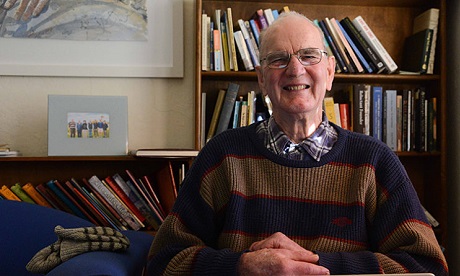Over the last weeks the war between Israel and Hamas has come to Australia.
In our local park each junction of the path is marked by a stenciled message demanding a ceasefire and withdrawal of Israeli troops from Gaza. Large, mainly peaceful, demonstrations in favour of the people of Gaza and of Israel have been held in the major Australian cities.
The media have highlighted increased prejudice and threats made against Jewish people, and have also reported similar experiences by Muslims.
Protagonists for Israel and Hamas have urged the Government and people to support one side whole-heartedly and to reject totally the other.
This pressure to make such a choice is understandable after so many innocent people have been killed. But it should be rejected.
For the people of Israel and Gaza, and so for Australians, the real enemy is war itself.
We should privilege compassion for all the human beings whose own lives and relatives have been destroyed by war, including those in the Jewish and Palestinian communities in Australia.
The object of our policy should be a settlement that respects equally all the people in the region and is not built on deterrence.
Such a strategy may seem to be unrealistic.
But the alternative of endorsing the use of armed force by either side in order to annihilate its declared enemies and to turn its borderlands into shooting alleys is a sure recipe for deepening hatred and future conflict.
The families of those whom our chosen side has killed will breed and inspire the next generation of patriots, freedom fighters or terrorists, call them what you will.
They may very well be confused about what they stand for, but they will be sure about whom they stand against. The resulting entrenched hostility will then corrupt the civic values we claim to be at stake in endorsing the war.
Those who declare that the real enemy is war and who advocate for peace are usually criticised for being naively optimistic.
Some will denounce them as stooges of a hostile power. That may sometimes be the case, but not necessarily so. It is possible to recognise war to be the real enemy, while simultaneously recognising the complex challenges involved in avoiding war and encouraging peace.
In Israel, for example, the Government certainly has a duty to keep its people safe.
It is certainly responding to an attack by a group that wants to destroy Israel. That group is prepared to take and use hostages in order to deter military action.
It may also place its command posts and other military centres close to schools and hospitals, making it certain that many non-combatants are bound to be injured and killed in military action. Nor can a ceasefire be guaranteed to secure the return of hostages, the separation of civilians from combatants, and lead to peace.
These considerations, however, do not justify a war in which many people will die and be left destitute, in which there is no strategy for securing a just peace, and which will be followed by further human misery and the seeds of further wars.
Australia should focus on support for the people who are the victims of war and on pressing for an end to the war and for a just peace.
The focus on persons affected by the war extends beyond Israel and Gaza to Palestinian and Israeli communities in Australia.
They will have lost relatives to war, will be deeply concerned for their countries of origin and fearful for the future.
They should be able to express their convictions and solidarity with their kinsmen and plead their cause publicly in a way that does not lead to conflict with other opposed groups.
Media have a responsibility to report the activities and views of these groups without using them to make political points. This involves taking account of the complexity and volatility of public life.
Demonstrations allow people to take stands. They also draw in partisan people from outside the communities who seek disruption and confrontation.
In times of war these voices can always draw on such creative and tendentious reporting as that of the raped nuns of the First World War and the Weapons of Mass Destruction during the Iraq invasion.
Immigrant communities will always be vulnerable to racial and xenophobic discrimination, doubly so when racist attitudes recently evident in Australia are magnified by the lack of social cohesion associated with economic hardship. Both Muslims and Jews will be subject to racist abuse with all its memories of past trauma.
Seeing war as the enemy abroad entails working to heal and to soothe wounds in the local community, not to exacerbate them.
- Andrew Hamilton S.J. is a Eureka Street editorial consultant and a policy officer with Jesuit Social Services. He taught theology for many years, has contributed widely to theological and religious journals and has had a long-standing engagement with refugee communities and issues.
- First published in Eureka Street
